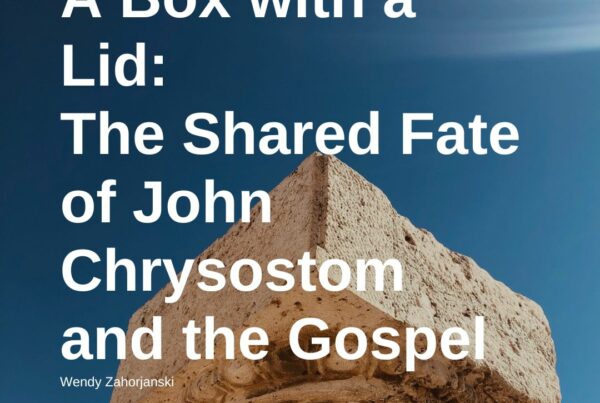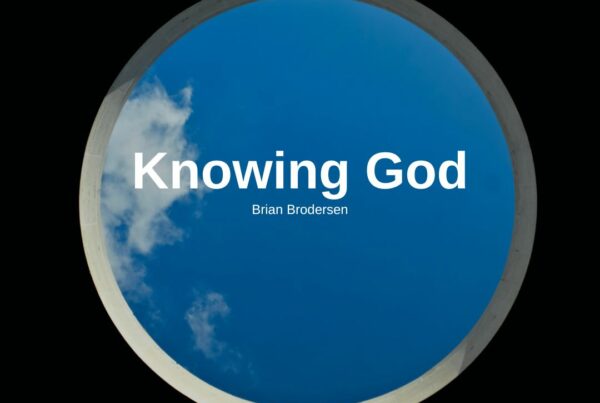
Exodus 12:1-3
When Christ called the church of Ephesus back to its first love, he called all of us back to ours (Revelation 2:4-5). Years of church services and small groups, decades of ministry and study, if we aren’t careful, have the potential of developing into apathy.
The fault does not lie in these means of grace God has given, but in our flesh. And, at points such as these, we need reviving. The waters of our souls must be stirred again so that we might be healed.
Fortunately, God has supplied us with the material we need to awaken again to his power and love. For me, one such instrument has been the story of Israel’s exodus from Egypt and their crossing of the Red Sea. In their celebration, I see my reason to celebrate. In their song, I sing.
Israel’s Story
Israel, with broken backs and dispirited souls, cried out to the God of their fathers. Egyptian whips slashed their bodies, and slavery’s demands induced prayer. “God of Abraham, Isaac, and Jacob. We are yours. Where are you?”
And God heard their cry and saw their misery. He was ready to move.
Truthfully, he had already moved. The Israelite prayer could not beat him to the punch. For eight decades, God had prepared Moses to confront the almighty power of Pharaoh. The God and King of all flesh was about to collide with Egypt’s gods and god-king. The enslaving forces of darkness would not prevail on God’s elect much longer.
So Moses, with God’s assurances and plans, emerged from the wilderness. “Thus saith the Lord, ‘Let my people go!'” Moses said. The meekest man in all the earth, God thundered through his body and the staff in his hand. Soon chaos descended upon a hardened Pharaoh and his people. With plague after plague, God unleashed hell upon hell’s powers. God would set his people free.
And when the land and will of the people were decimated, God announced one last plague. Any home without the Passover lamb’s blood on its door would suffer the death of the firstborn. Only blood could save. But many resisted, and the horrors of that night led to Israel’s freedom.
But Pharaoh would still not easily yield. A few days later, Israel, set free on the night of the Passover, had begun to wander off its course to the Promised Land. So Pharaoh’s officers reported Israel’s current location — pinned against the waters of the Red Sea. Nothing could save them now. They had tried to run, and now he would gun them down. His chariots tore the earth on their way to deliver pain.
So God erected a wall of fire behind his people. They were momentarily protected, but fear invaded their hearts. They ran to Moses, longing for the days of slavery, times when a man could die in peace.
Moses told them to be quiet. Say no more. Be still. Moses raised his staff to the waters, and a strong wind blew. Lightning flashed, and the earth shook. The body of water was fundamentally changed. The dead-end had become a pathway to freedom. The obstacle had become an opportunity. God had made a way where there was no way. Soon, the sea parted, and the people went through on dry land.
Now the Egyptians saw this miracle and, when God removed the wall of fire, decided to pursue God’s people into the waters. This was the final judgment God would deliver upon these hardened Egyptian overlords. God had to rescue his own. He had given them his promise. So God released the waters, their backs and bodies were broken, and the war was one. Egypt’s spell was thwarted. God had defeated the power of powers.
Israel witnessed it all. There was only one way to respond — with song.
Their Song
Exodus 15:1–3 (ESV) — 1 Then Moses and the people of Israel sang this song to the LORD, saying, “I will sing to the LORD, for he has triumphed gloriously; the horse and his rider he has thrown into the sea. 2 The LORD is my strength and my song, and he has become my salvation; this is my God, and I will praise him, my father’s God, and I will exalt him. 3 The LORD is a man of war; the LORD is his name.”
And our Lord is still a man of war. He saw the battered masses enslaved to the elements of this world, living dead in trespasses and sins. He would not sit still. Before you or I ever cried for deliverance, he raised a deliverer.
Better than Moses, Christ came. He did not raise his wooden staff but was raised to a wooden cross. He did not sacrifice lambs; he is the sacrificial Lamb. He did not rain down plagues, but the plague rained down on him.
But the dark night of his death brought his resurrection. He was brought through the burial waters so that he might bring us through the burial waters. He died for sin so that we might die to sin. He rose so that we might rise.
When there was no way, when we were dead and trapped and paralyzed and destined to darkness forever, he arrived. He lifted his voice and said, “Be still and know that I am God. I will make a way where there was no way.” He came out of his grave and provided the path to resurrection life for all who trust him. The waters have parted. New life and freedom are ours.
Our Prayer
O God, our God, you have come. The Son has arrived with healing in his wings. You, O Lord, have suffered the terrors of the cross, that we might have life. Your wrath has passed over your children, and you have brought us into newness.
We were dead, and now we are alive. We were blind, but now we see.
We were lost, but now we are found. We were enslaved, but now we are free.
You, O God, have delivered our souls. And just as Israel gathered on the eastern beaches of the Red Sea to sing your praises, this quarter we will gather in living rooms and Zoom rooms to celebrate as well. We will rejoice that we are redeemed and set free, bought by the God who saved us.
You, O God, are our strength. You are our song. You, O God, are a man of war.







